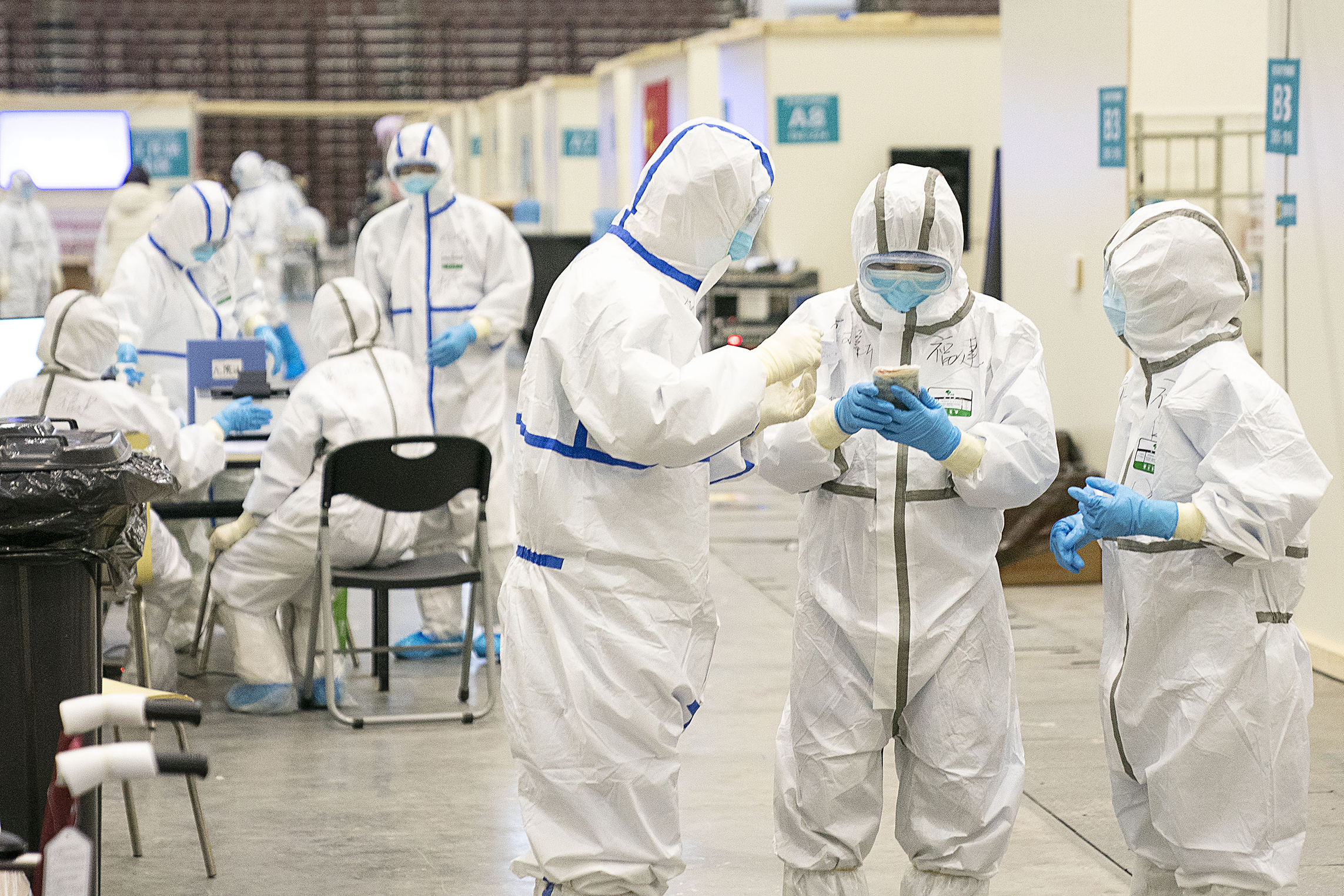Pandemic is an outbreak of disease that attacks many people at about the same time and spreads worldwide. An epidemic is a similar outbreak. However, during an epidemic, the contagious illness sweeps only through a community or a continent. An epidemic that travels rapidly from one continent to another becomes a pandemic. A pandemic may last for a few weeks, for months, or for many years. The most recent pandemic resulted from the outbreak and spread of COVID-19 —a respiratory disease caused by a type of coronavirus that began in 2019. Other pandemics include the Spanish flu of 1918 and 1919, and the Black Death of the mid-1300’s.

The World Health Organization (WHO ), a specialized agency of the United Nations, is responsible for designating a particular outbreak of disease as a pandemic. WHO, public health agencies, and national governments are responsible for the control of pandemics. Countries must work cooperatively and openly with one another in their efforts to bring a pandemic under control. Immunizations can prevent pandemics of some infectious diseases, such as influenza . Other pandemics may be prevented by maintaining clean food and water supplies, or by controlling insects and other animals that may spread disease. Informing people about the causes of pandemics and the methods of prevention is crucial in the control of such outbreaks.
